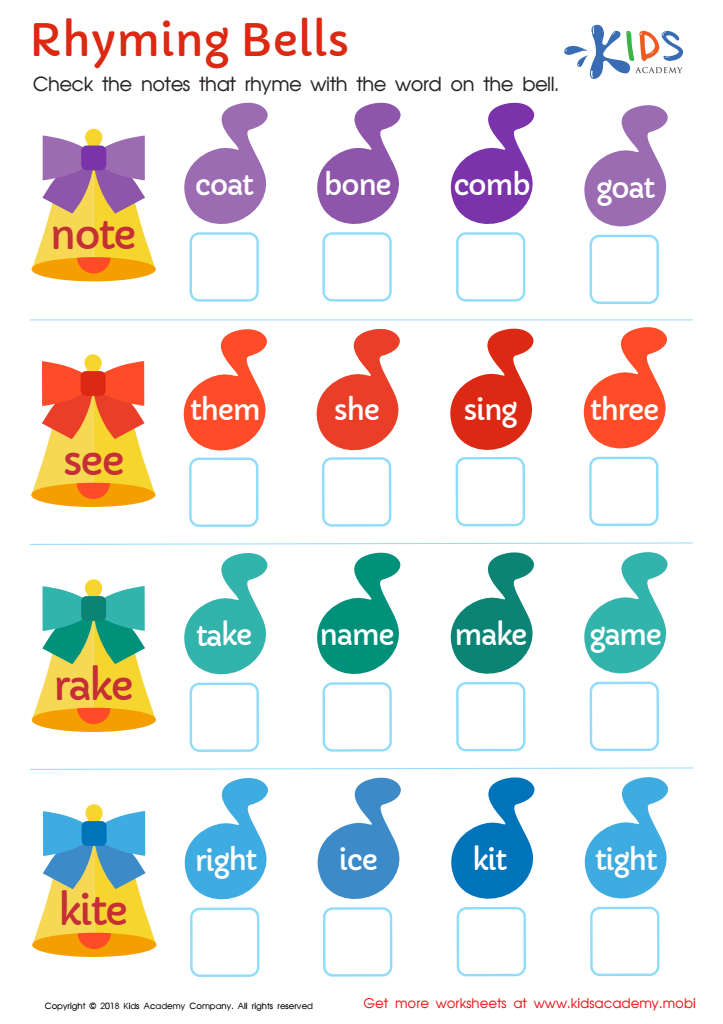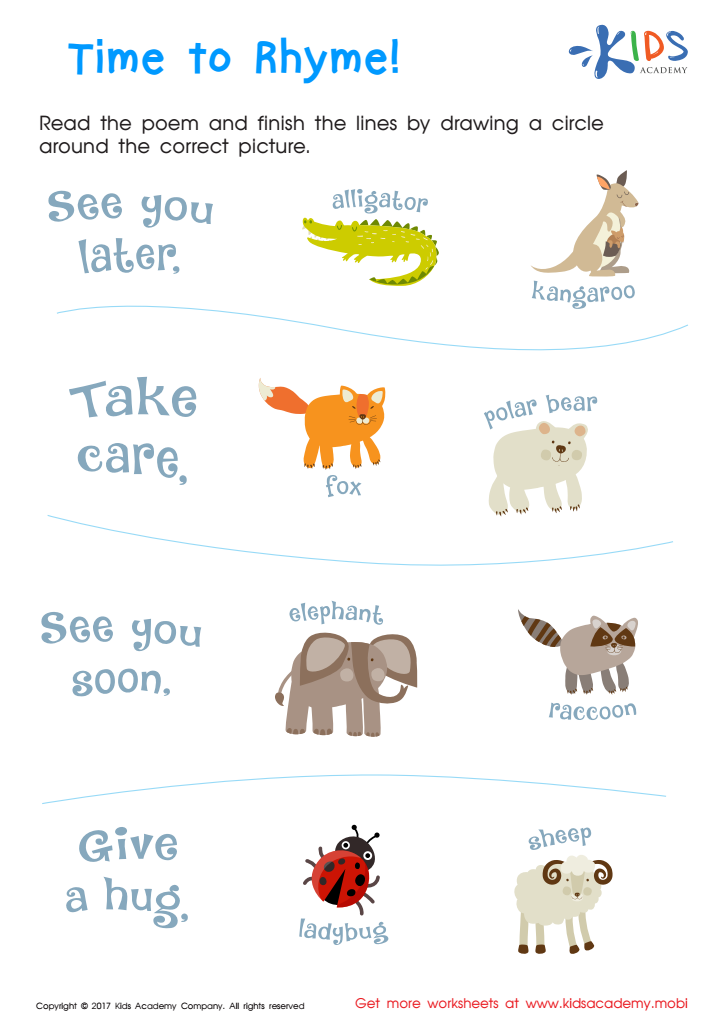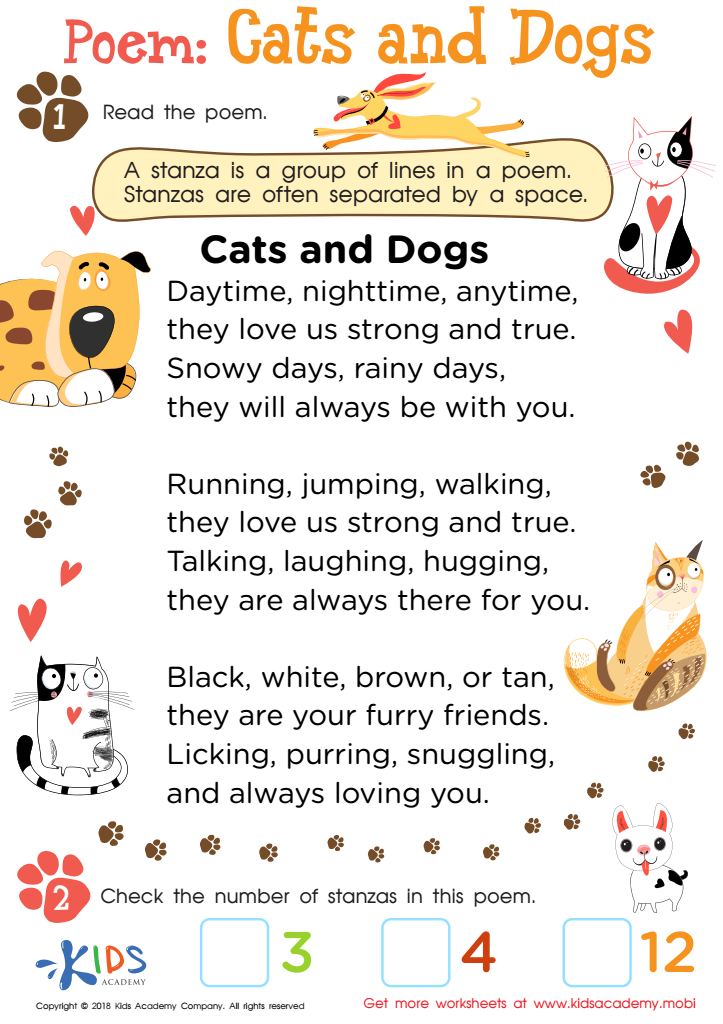Reading comprehension Normal Rhyming Worksheets for Ages 6-9
7 filtered results
-
From - To
Enhance your child’s reading skills with our "Reading Comprehension Normal Rhyming Worksheets for Ages 6-9." These engaging worksheets are designed to boost young learners' comprehension abilities while making learning fun through rhyming activities. Each worksheet features captivating rhymes that help children identify patterns and build vocabulary. Our worksheets are perfect for developing critical thinking and understanding in an age-appropriate format. With a variety of themes, these printable sheets ensure that reading practice is enjoyable and effective. Ideal for both classroom use and at-home practice, these worksheets are a great resource for fostering a love of reading in your child.


Rhyming Words: Assessment Worksheet


Rhymes in Poems Worksheet


Rhyming Words Rhyming Worksheet


Rhyming Bells Worksheet


First Words: Picture Rhymes Worksheet


Time to Rhyme Rhyming Worksheet


Poem: Cats and Dogs Worksheet
Reading comprehension is a fundamental skill that serves as a cornerstone for all future learning, and the use of normal rhyming for ages 6-9 enhances this skill considerably. At this developmental stage, children are honing their language abilities, and rhyming helps them recognize sound patterns, expanding their phonemic awareness. Simple, rhyming texts can be particularly engaging and enjoyable for young readers, offering a fun way to reinforce learning.
Understanding rhymes aids in predicting text, which fosters better comprehension and retention. When children anticipate the rhyme, they are mentally engaged and actively interacting with the material. This engagement aids in decoding new words and solidifying their meanings, thereby expanding a child's vocabulary. Early exposure to rhymed literature also often incorporates a rhythm that helps in promoting fluency in reading, enabling kids to read more confidently and expressively.
Crucially, cultivating these skills early helps to build a strong foundation for later academic success across all subjects. Reading comprehension is not just about understanding books; it impacts a child's ability to follow instructions, solve problems, and think critically. By supporting young learners with rhyming passages, parents and teachers can motivate them and support ease with more complex reading materials in the future. In sum, investing in these early, enjoyable reading experiences positions children for a more successful and enriched educational journey.
 Assign to My Students
Assign to My Students













